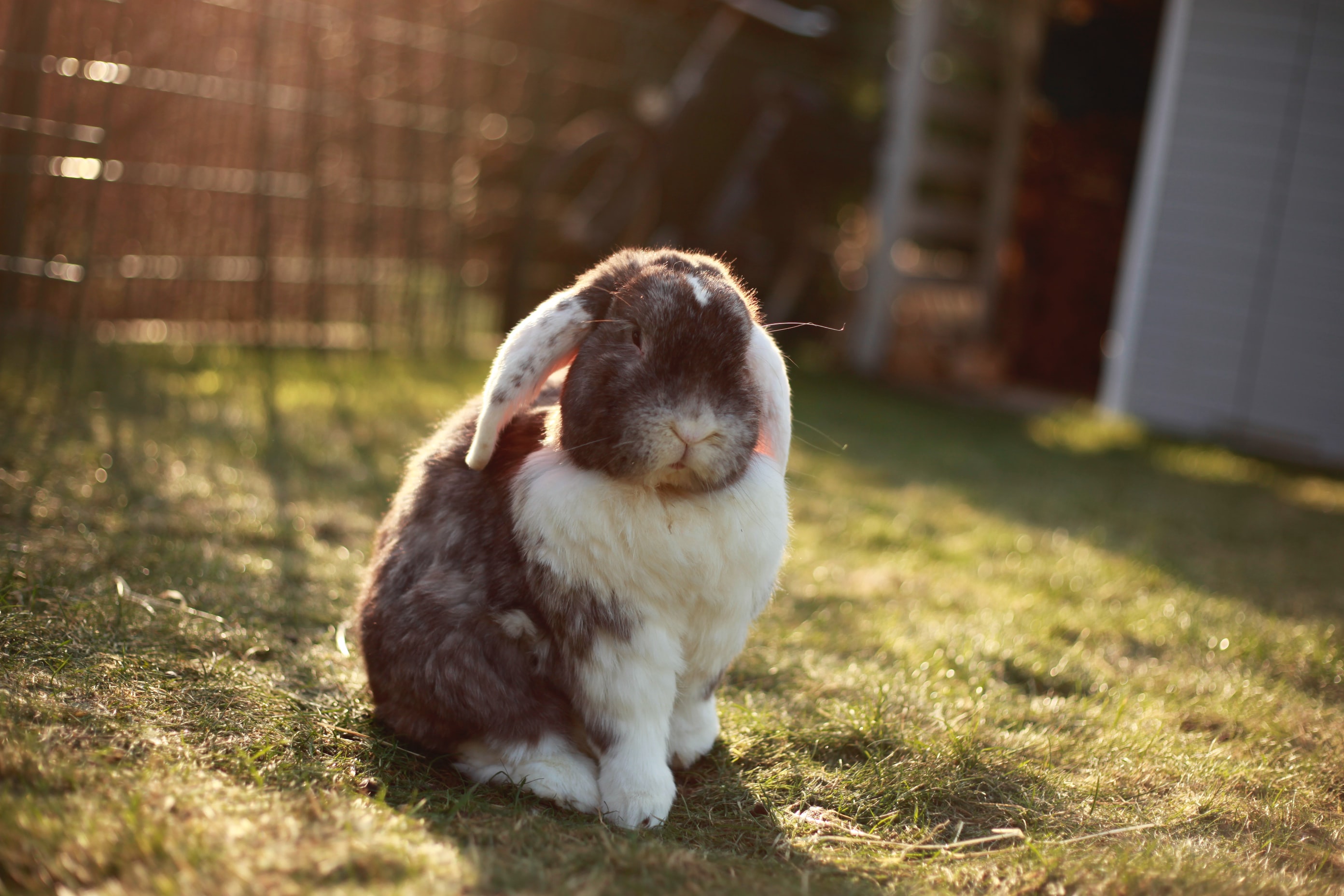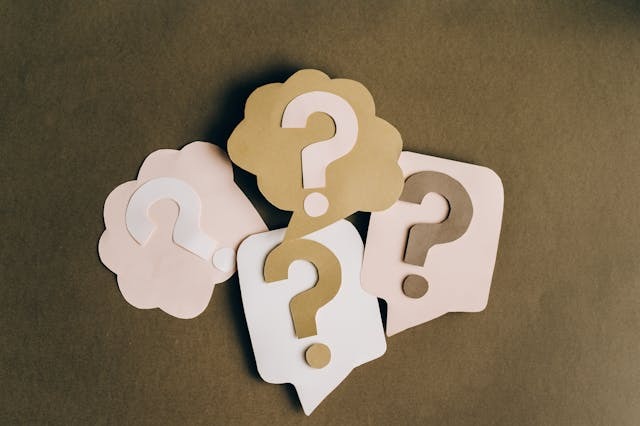Down that rabbit hole?进入那个兔子洞?
中国日报网 2021-02-09 15:37

Reader question:
Please explain this sentence: “I wish I hadn’t gone down that rabbit hole.”

My comments:
The speaker seems to have done something wrong or regrettable. At any rate, he or she sounds regrettable.
What that rabbit hole is, in other words, exactly what it is that they did wrong is not specified. But we can infer from the “rabbit hole” that it’s probably something pretty complicated, confusing and unpredictable.
Rabbit hole, you see, literally refers to a hole in the field that a rabbit digs, where they live and where they hide in times of danger. We Chinese have an understanding that a cunning old rabbit has three or more holes to dwell in. That’s because a rabbit has been observed to run into different holes when they rush into hiding.
Actually, underground there’s an intricate network of tunnels linking those holes on the ground. On the ground the holes may look isolated. Underground, however, they’re interconnected. They’re part of the whole, pun unintended.
Needless to say, if a person falls into a rabbit hole and faces many tunnels every which way, he or she may lose their way.
That’s the basic idea of falling into the rabbit hole.
This expression is, or rather was popularized by the classic children’s book Alice in Wonderland. Here’s an explanation by Dictionary.com:
Literally, a rabbit hole is what the animal digs for its home. The earliest written record of the phrase dates back to the 17th century. But the figurative rabbit hole begins with Lewis Carroll’s 1865 classic, Alice’s Adventures in Wonderland. In its opening chapter, “Down the Rabbit-Hole,” Alice follows the White Rabbit into his burrow, which transports her to the strange, surreal, and nonsensical world of Wonderland.
Since then, Carroll’s rabbit hole has proved a popular and useful reference. The Oxford English Dictionary finds the first allusive rabbit hole in a 1938 edition of The Yale Law Journal: “It is the Rabbit-Hole down which we fell into the Law, and to him who has gone down it, no queer performance is strange.” Over much of the 20th century, rabbit hole has been used to characterize bizarre and irrational experiences. It’s especially used to reference magical, challenging, and even dangerous places or positions, similar to Carroll’s topsy-turvy Wonderland.
Rabbit hole has many metaphorical applications—from frustrating red tape to the mind-bending complexity of science to hallucinations during altered states—all united by a common sense of passing into some labyrinthine, logic-defying realm that, once entered, is hard to get out of. One can fall down the rabbit hole of government bureaucracy, healthcare, obtaining a green card, tax law, the political economy of modern Japan, puberty, college admissions, or quantum mechanics.
All clear?
I think so. All right, no more ado, here are recent media examples of the proverbial rabbit hole, into which people fall or venture down willingly:
1. Earlier this month, shortly after the Howard County Board of Education approved online learning for county students through at least January, Jessica Nichols, like many, went to social media to see what people thought.
Nichols, a social studies teacher at River Hill High School in Clarksville, visited community groups on Facebook, where she saw a few people criticizing teachers for the decision the school system and the Board of Education made.
“I was someone who was active in a couple of online forums with people from Howard County, and I stopped being active when someone called me ‘lazy’ and [said] that I didn’t want to do my job,” said Nichols, who has taught in Howard County for seven years. “I brought up a couple of things I was concerned about as a teacher, like [personal protective equipment] for staff and students, and I was called ‘lazy’ for that.”
In the days since the board’s decision to go virtual through the first semester — a choice that many school systems in the state have made amid the coronavirus pandemic — anti-teacher rhetoric online has increased. The community Facebook groups, which normally consist of educational discussion and outreach along with political opinions and emotional rhetoric, were home to most of the comments about educators in the county. Some posts were later deleted by group moderators, while others had comments turned off.
“I absolutely get offended,” said Wendy Strawhorn, a Gifted and Talented resource teacher at Jeffers Hill Elementary School in Columbia. “I don’t think people take the time to understand what it’s like to be a teacher. I will go down the rabbit hole and read the comments, but I try not to comment. I don’t think you can fix ‘crazy,’ and I don’t think you can change peoples’ opinions.”
Most of the comments were minor, like calling teachers “lazy” or “snowflakes,” referring to a slang term for people easily hurt by insults or those with a seemingly unwarranted sense of entitlement. Others hoped or cheered for possible layoffs or furloughs of educators, sometimes in conversation with a teacher in the thread.
- Howard County educators react to anti-teacher rhetoric online amid school system’s virtual learning decision, BaltimoreSun.com, July 28, 2020.
2. Media attention around QAnon is buzzing as we head into election season. Here’s an interview I conducted for Julia Sachs’s article about QAnon for GritDaily:
Have you noticed specific traits in people that become QAnon believers?
First of all, about half the population believes in at least one conspiracy theory, so conspiracy theory beliefs are “normal.” That said, psychology research has shown greater degrees of certain cognitive quirks among those who believe in conspiracy theories—like need for uniqueness; needs for certainty, closure, and control; and lack of analytical thinking. But the best predictor of conspiracy theory belief may be mistrust, and more specifically, mistrust of authoritative sources of information. Which means that those most likely to become QAnon believers mistrust mainstream sources of information, spend a lot of time on the internet and social media looking for alternative answers, and are devotees of President Trump.
QAnon also includes other facets that are appealing to some that can serve as “hooks” that lure people into the world of QAnon. There's obviously a central pro-Trump/anti-liberal component, but there’s also considerable overlap with evangelical Christianity and its looming apocalyptic battle between good and evil. And now there's overlap with people who are concerned about child sex trafficking, with QAnon highjacking #SaveTheChildren. Curiously, however, those who are “hooked” from this angle are able to turn a blind eye to President Trump’s own friendship with Jeffrey Epstein or the several charges made against him about sexual assault of minors, which amounts to a classic case of cognitive dissonance and confirmation bias.
In what ways does this conspiracy theory impact relationships?
In order to maintain fringe beliefs, it’s often necessary to turn away from the mainstream, including any family and friends who disagree with you. In “falling down the rabbit hole,” QAnon followers have often found a new world, and to some extent a new “family” of like-minded believers that make previous relationships less rewarding and more fraught. Similar to differences in political beliefs, arguments about QAnon can definitely break up marriages or cause significant strain on other relationships.
Immersing oneself in the internet world of QAnon can also resemble a behavioral addiction to pursuits like video games or gambling. QAnon is a complex world of interrelated conspiracy theories; it takes significant effort to follow. And so, devotees often end up spending more and more time on it, at the expense of in-person relationships, work, or more traditional recreational activities.
How should someone approach speaking to a loved one about their belief of QAnon?
Before you try, think about what your goals are: Are you just trying to make small talk over Thanksgiving dinner? Are you really trying to understand what they believe and why? Or are you trying to change their minds?
Depending on the circumstances, it might be best not to bring up QAnon at all. If you are going to ask about it, try to start by listening in an effort to understand. See if there’s any common ground. Understand that belief in QAnon requires a rejection of mainstream sources of information, so that bringing those up isn't going to change anyone's mind. If you are hoping to challenge their beliefs, read up on QAnon: Arguing from a place of ignorance isn't likely to get you very far. Neither is ridicule, if your loved one is a “true believer.”
- What Kind of Person Believes in QAnon?, by Joe Pierre, PsychologyToday.com, September 23, 2020.
3. On Jan. 6, Hilary Izatt was watching TV when she began to worry.
“My husband and I are both political scientists; we’re kind of nerdy; we watch C-SPAN a lot,” Izatt says. “And when we were watching C-SPAN is when the rioters started breaking into the Capitol.”
Izatt, 39, is a doctoral student in political science at the University of Michigan. She says her dad, who lives in Utah, had told her he was traveling to Washington, D.C., to join the massive pro-Trump rally planned for that day.
What she saw unfolding on the screen scared her.
“I was mostly worried for his safety and I texted him and he got back to me and he just said, ‘Don’t believe everything you’re watching on TV,’ ” she says. “So I don’t believe like C-SPAN? I’m not sure what he meant by that.”
“But it was this realization that I think we’re coming from two very different realities.”
Izatt’s father declined to comment, but Izatt says she believes he was not among the group that stormed the Capitol. Still, she’s uncomfortable with the idea that he was there that day at all.
Like Izatt, many Americans are feeling like they’ve lost loved ones to a web of conspiracy theories and false information circulating online. A recent NPR/PBS News Hour/Marist poll, for example, found that only 1 in 5 Republicans accept Biden’s victory.
...
Dennis, a retiree from Maryland — who asked that we use only his first name for fear of his safety in the current climate — has grown increasingly worried about his daughter’s embrace of false ideas about the election.
“She’s talked about the election being stolen and I’ve pushed back on that – you know, the standard, ‘Where’s your proof? And how do you suppose this happened?’ ” Dennis says.
His daughter, Paula, lives near Baltimore and works as an office manager. In an interview with NPR, she says her father told her she was ‘in La-La Land, but I really don’t feel that I am.”
Paula says she’s been a conservative all of her life. She says she distrusts elected officials and cannot believe Biden won — despite what many courts and elections have repeatedly confirmed — and regardless of what her dad said about her grasp of reality.
“I was a little bit irritated, but my response is, ‘Well, I'm there with 70 million other people, then,’” she says.
Hawdon, the violence prevention researcher at Virginia Tech, says one long-term solution could involve better education in data literacy to help young people learn how to sort through fact and fiction. In the short term, if a loved one is spouting misinformation, he advises pushing back kindly — and trying to understand what led to that belief.
“I don’t really believe people started off believing that there are pedophile rings under a pizza place,” he says. “Something got them down that rabbit hole and you have to understand what that root cause is.”
Combating misinformation when a loved one is caught in a web of conspiracies, OPB.org, January 31, 2021.
本文仅代表作者本人观点,与本网立场无关。欢迎大家讨论学术问题,尊重他人,禁止人身攻击和发布一切违反国家现行法律法规的内容。
About the author:

Zhang Xin is Trainer at chinadaily.com.cn. He has been with China Daily since 1988, when he graduated from Beijing Foreign Studies University. Write him at: zhangxin@chinadaily.com.cn, or raise a question for potential use in a future column.

















 英语点津微信
英语点津微信 双语小程序
双语小程序